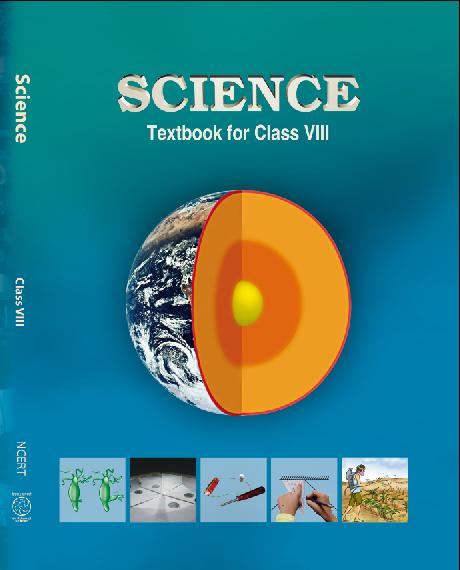
myCBSEguide App
Download the app to get CBSE Sample Papers 2023-24, NCERT Solutions (Revised), Most Important Questions, Previous Year Question Bank, Mock Tests, and Detailed Notes.
Install NowNCERT Solutions for Class 8 Science Coal and Petroleum Class 8 Science book solutions are available in PDF format for free download. These ncert book chapter wise questions and answers are very helpful for CBSE exam. CBSE recommends NCERT books and most of the questions in CBSE exam are asked from NCERT text books. Class 8 Science chapter wise NCERT solution for Class 8 Science all the chapters can be downloaded from our website and myCBSEguide mobile app for free.q
NCERT solutions for Science Coal and Petroleum Download as PDF

NCERT Class 8 Science Chapter wise Solutions
- 1 – Crop Production and Management
- 2 – Microorganisms : Friend and Foe
- 3 – Synthetic Fibres and Plastics
- 4 – Materials : Metals and Non-Metals
- 5 – Coal and Petroleum
- 6 – Combustion and Flame
- 7 – Conservation of Plants and Animals
- 8 – Cell – Structure and Functions
- 9 – Reproduction in Animals
- 10 – Reaching The Age of Adolescence
- 11 – Force and Pressure
- 12 – Friction
- 13 – Sound
- 14 – Chemical Effects of Electric Current
- 15 – Some Natural Phenomena
- 16 – Light
- 17 – Stars and The Solar System
- 18 – Pollution of Air and Water
NCERT Solutions for Class 8 Science Coal and Petroleum
Class–VIII Science NCERT SOLUTION
Ch-5 Coal and Petroleum
1. What are the advantages of using CNG and LPG as fuels?
Ans. The advantage of using CNG and LPG are as follows:
a. These are cleaner fuels.
b. These are low cost fuels.
c. These are available easily.
d. These can be supplied through pipes.
2. Name the petroleum product used for surfacing of roads.
Ans. These days bitumen, a petroleum product is used for surfacing the roads in place of coal tar.
NCERT Solutions for Class 8 Science Coal and Petroleum
3. Describe how coal is formed from dead vegetation. What is this process called?
Ans. Million years ago, earth was having dense forests in low lying wet land areas. Due to earthquakes and volcanic eruptions, these forests got buried under the soil. As more soil deposited over them, they were compressed. The temperature also raised as they sank deeper and deeper. Due to high temperature and lack of oxygen dead plants inside the earth got slowly converted to coal. This process of coal formation is called carbonization.
NCERT Solutions for Class 8 Science Coal and Petroleum
4. Fill in the blanks.
(a) Fossil fuels are ________, ______________, and ________________.
(b) Process of separation of different constituents from petroleum is called______.
(c) Least polluting fuel for vehicle is ________________.
Ans.
(a) Coal, Petroleum and Natural gas.
(b) Refining
(c) CNG
NCERT Solutions for Class 8 Science Coal and Petroleum
5. Tick true/False against the following statements.
(a) Fossils fuels can be made in laboratory. (T/F)
(b) CNG is more polluting fuel than petrol. (T/F)
(c) Coke is almost pure form of carbon. (T/F)
(d) Coal tar is a mixture of various substances. (T/F)
(e) Kerosene is not a fossil fuel. (T/F)
Ans. Tick True/false.
(a) F
(b) F
(c) T
(d) T
(e) F
NCERT Solutions for Class 8 Science Coal and Petroleum
6. Explain why fossil fuels are exhaustible natural resources.
Ans. Fossils fuels are present in nature in limited quantity and are being exhausted abundantly by us. That is why fossil fuels are called exhaustible natural resources.
NCERT Solutions for Class 8 Science Coal and Petroleum
7. Describe characteristics and uses of coke.
Ans. Coke is a tough porous black substance. It is almost pure form of carbon. It is used in the manufacture of steel and in the extraction of many metals.
NCERT Solutions for Class 8 Science Coal and Petroleum
8. Explain the process of formation of petroleum.
Ans. Petroleum is formed from organism living in the sea. When these organism died, their bodies settled at the bottom of the sea and got covered with layers of the sand and clay. Over millions of years, they were transformed into petroleum oil and natural gas under the absence of air and presence of high temperature and high pressure.
NCERT Solutions for Class 8 Science Coal and Petroleum
9. The following table shows the total power shortage in India from 1991-1997. Show the data in the form of a graph. Plot shortage percentage for the years on the Y-axis and the year on the X-axis.

Ans.

NCERT solutions for Class 8 Science
NCERT Solutions Class 8 Science PDF (Download) Free from myCBSEguide app and myCBSEguide website. Ncert solution class 8 Science includes text book solutions from Class 8 Science Book . NCERT Solutions for CBSE Class 8 Science have total 18 chapters. 8 Science NCERT Solutions in PDF for free Download on our website. Ncert Social Science class 8 solutions PDF and Science ncert class 8 PDF solutions with latest modifications and as per the latest CBSE syllabus are only available in myCBSEguide.
CBSE app for Students
To download NCERT Solutions for class 8 Social Science, Computer Science, Home Science,Hindi ,English, Maths Science do check myCBSEguide app or website. myCBSEguide provides sample papers with solution, test papers for chapter-wise practice, NCERT solutions, NCERT Exemplar solutions, quick revision notes for ready reference, CBSE guess papers and CBSE important question papers. Sample Paper all are made available through the best app for CBSE students and myCBSEguide website.

Test Generator
Create question paper PDF and online tests with your own name & logo in minutes.
Create Now
myCBSEguide
Question Bank, Mock Tests, Exam Papers, NCERT Solutions, Sample Papers, Notes
Install Now
I like this site ??????????
Thank you
Thank you for helping me